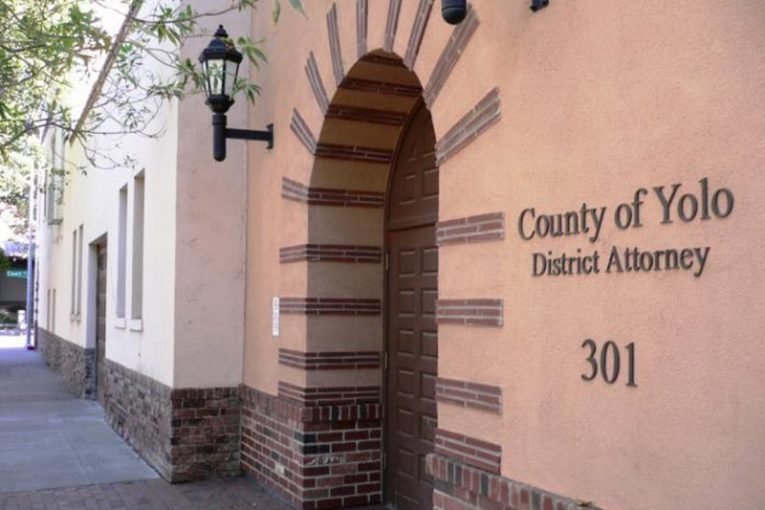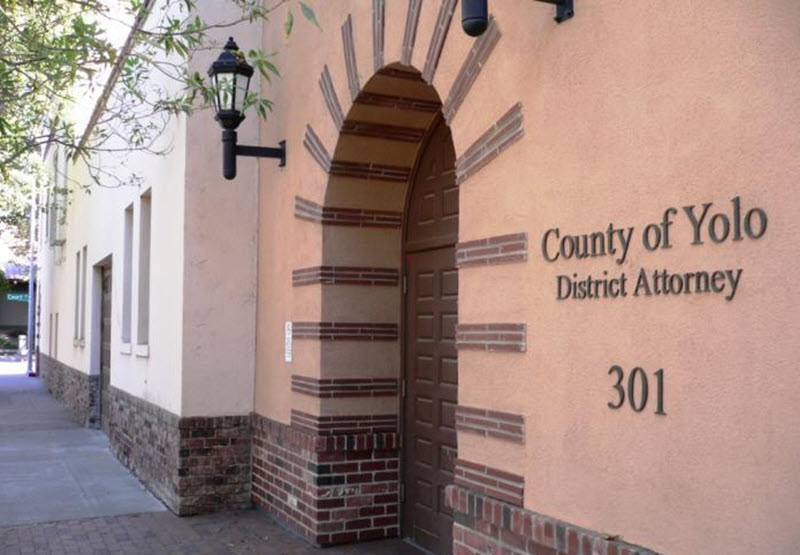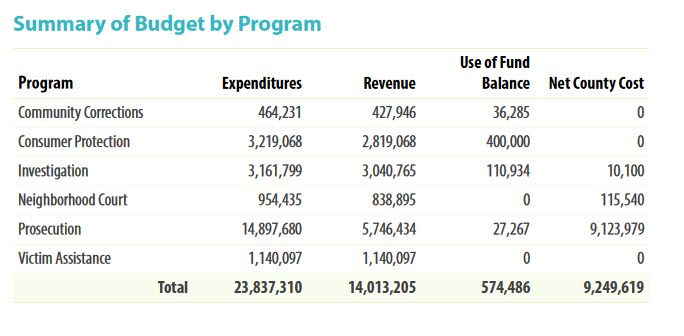

By David M. Greenwald
Last week, Supervisor Don Saylor sounded the alarm that the County is proposing inexplicably increasing expenditures on the District Attorney’s Office.
Here’s the thing—there is a lot of misdirection here if you look at the actual budget by program. That’s because of the $23.8 million spent by the DA—only $9.2 million of that comes from the county budget, which means the rest comes from grants and other sources.
But, leaving that point aside, what the DA is proposing is inexplicable.
First, as Saylor points out, the DA proposes $23.8 million in total spending for 2020-21, an increase of $5.6 million or 31 percent over 2018-19 actual spending of $18.2 million.
But even just looking at the county portion of that, the DA’s request for County General Fund for 2020-21 is proposed to increase to $9.2 million, an increase of $1.8 million or 24 percent over 2018-19 actual spending.

It is important to put this into context.
First of all, we are in a pandemic. This is a time when revenues to the county will be greatly diminished. As Don Saylor points out, “This year, the Final Budget will also address reduced revenues and expenditures related to the COVID-19 pandemic.”
Second, if we prioritize our expenditures, where do we need the money to go?
“Budgets are tangible expressions of our values,” Saylor writes. “I believe we need to invest in youth development, housing affordability, climate resilience,  and strengthening local businesses and our communities.”
and strengthening local businesses and our communities.”
Third, the Public Defender’s Office is receiving about $8.9 million overall, with $8.4 million of that from the county. On the one hand, that looks like relative equity. They even get a modest increase over what they received last year. But that only looks at the county side.
Overall it is a nearly $24 million to $9 million advantage for the DA’s Office. Even if you factor in the fact that the DAs charge all criminal matters and public defenders only represent 80 percent of all defendants, that’s still a gross inequity that produces a huge resource advantage in a county—that is actually better than most, in terms of resources for public defenders.
Fourth, the big picture makes this funding increase even less understandable. Crime remains near 40-year lows. Reforms by the state have greatly reduced the number of felony trials that require vast resources. What is the justification?
Finally, there has been a push by many reformers to defund law enforcement. To shift funding from punishment-based systems to preventative-based systems. How do we have a budget that prioritizes the former over the latter?
Don Saylor poses a number of questions to Jeff Reisig, the District Attorney.
- Overall Increase. What will the General Fund $9.2 million proposed funds be used for? What accounts for the $1.8 million proposed General Fund increase over the 2018-19 actual spending?
- General Fund Increase. The DA is responsible to administer several special funds, including Consumer Fraud and Environmental Protection settlements and fines, Tobacco Enforcement, and Seized Asset funds. As of June 30, 2019, fund balances within the discretion of the DA had a combined balance of $12,696,452, with the lion’s share of $9.8 million resting in the Consumer Fraud fund. In the 2019-20 budget, the DA tapped $1.4 million in fund balances to use for operations. The proposed budget only allocates $400,000 from these funds. Why is the level of fund balance allocation anticipated in the 2020-21 budget reduced by $1 million, given the current fiscal challenges facing the County General Fund? What is the DA’s plan for use of these funds?
- Neighborhood Court. How many people are served through the Neighborhood Court program? How many for each offense category, jurisdiction and race and ethnicity? Given that the Neighborhood Court program is 90% funded by a three-year Edward Byrne grant and the DA has well over $12 million in fund balance, how would a reduction of $115,540 in General Fund impact the DA’s ability to divert or prosecute misdemeanor cases?
- Asset Seizure. How much money has the DA collected through asset forfeiture, on average per year? Could assets seized by the DA be used to fund youth development, diversion or rehabilitation?
- Consumer Fraud. Revenues to the Consumer Fraud and Environmental Protection Fund are gained by pursuit of those who do harm to the community. Doesn’t it make sense that those funds would be reinvested to directly benefit members of our community?
- Victim Services. The Budget Book (p 138) indicates the Victim Assistance Program’s Expenditures are fully covered by designated Revenues and there is no net county cost. Therefore, any General Fund budget cuts to the DA’s Office would not affect the Victim Assistance Program, correct?
- Demographics of Charging and Incarceration. Does the DA keep ethnicity and racial statistics on charging practices and incarceration?
Saylor writes: “I believe the substantial increase in proposed funding is worthy of scrutiny. The questions I have raised are appropriate matters of inquiry and within the reasonable scope of exercise of my responsibility as a member of the Board of Supervisors.”
Given the charge by the Board of Supervisor I would be remiss to not point out one other point.
Writes Don Saylor, “This is especially reasonable, given the stated strategy of the Yolo County District Attorney to ‘become more transparent to the Citizens of Yolo County.’”
And yet, from the start, DA Jeff Reisig has actually been very non-transparent. He has systematically refused to have conversations with or discussions with citizens who have been critical of his office and his practice. That is not only Trumpian in orientation, but it makes transparency and any effort to achieve it illusory.
—David M. Greenwald reporting
To sign up for our new newsletter – Everyday Injustice – https://tinyurl.com/yyultcf9






